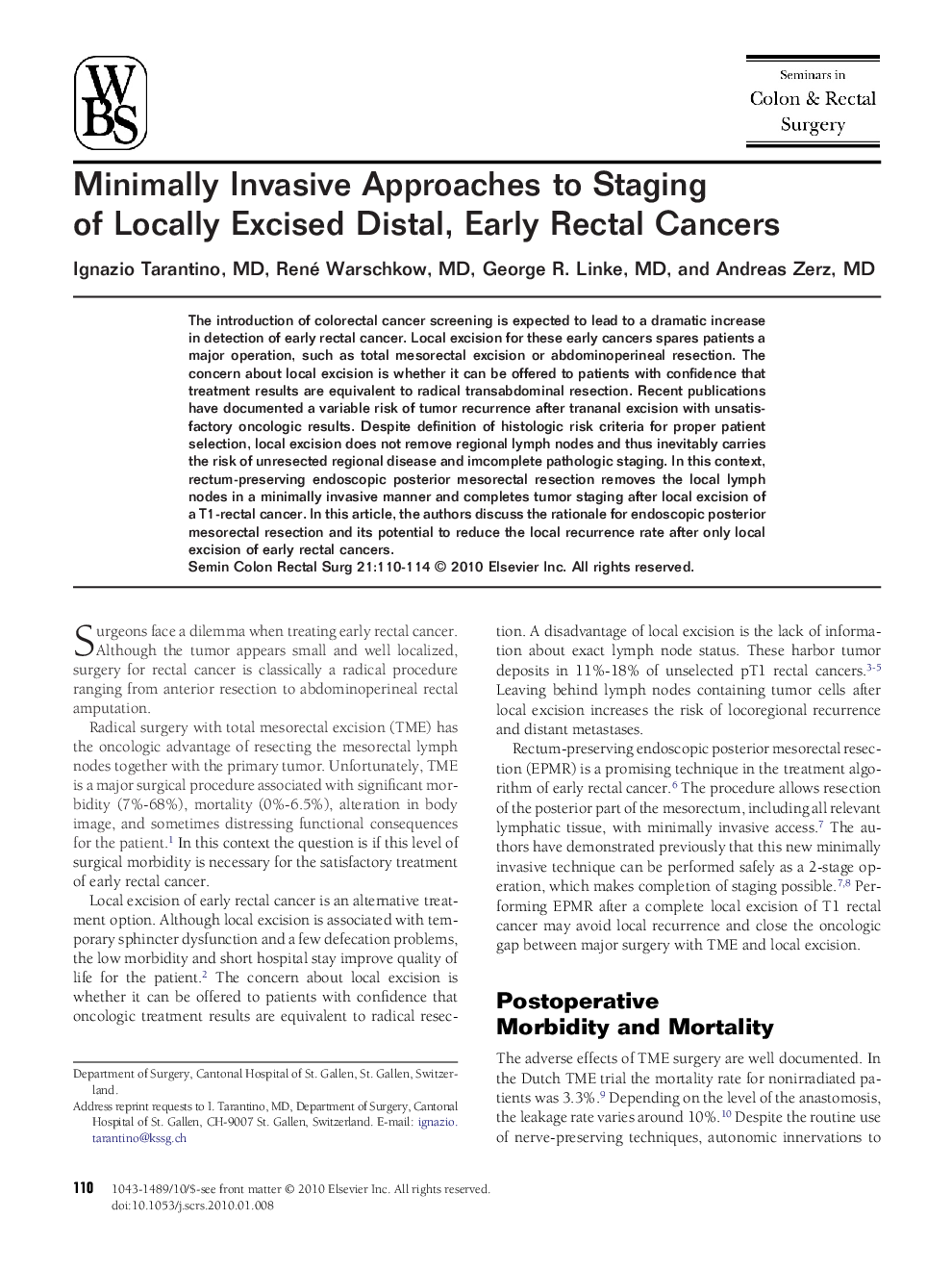| Article ID | Journal | Published Year | Pages | File Type |
|---|---|---|---|---|
| 3319446 | Seminars in Colon and Rectal Surgery | 2010 | 5 Pages |
Abstract
The introduction of colorectal cancer screening is expected to lead to a dramatic increase in detection of early rectal cancer. Local excision for these early cancers spares patients a major operation, such as total mesorectal excision or abdominoperineal resection. The concern about local excision is whether it can be offered to patients with confidence that treatment results are equivalent to radical transabdominal resection. Recent publications have documented a variable risk of tumor recurrence after trananal excision with unsatisfactory oncologic results. Despite definition of histologic risk criteria for proper patient selection, local excision does not remove regional lymph nodes and thus inevitably carries the risk of unresected regional disease and imcomplete pathologic staging. In this context, rectum-preserving endoscopic posterior mesorectal resection removes the local lymph nodes in a minimally invasive manner and completes tumor staging after local excision of a T1-rectal cancer. In this article, the authors discuss the rationale for endoscopic posterior mesorectal resection and its potential to reduce the local recurrence rate after only local excision of early rectal cancers.
Related Topics
Health Sciences
Medicine and Dentistry
Gastroenterology
Authors
Ignazio MD, René MD, George R. MD, Andreas MD,
